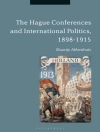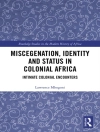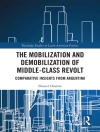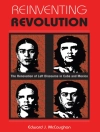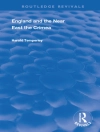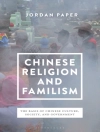In an era of rapidly increasing technological advances and international exchange, how did young people come to understand the world beyond their doorsteps? Focusing on Germany through the lens of the history of knowledge, this collection explores various media for children—from textbooks, adventure stories, and other literature to board games, museums, and cultural events—to probe what they aimed to teach young people about different cultures and world regions. These multifaceted contributions from specialists in historical, literary, and cultural studies delve into the ways that children absorbed, combined, and adapted notions of the world.
विषयसूची
List of Figures
Acknowledgements
Introduction: Children, the Nation, and the World
Simone Lässig and Andreas Weiß
PART I: OFFICIAL KNOWLEDGE
Chapter 1. New Words and the New World: Language and the Transnational Legacy of Joachim Heinrich Campe’s Robinson der Jüngere
Kirsten Belgum
Chapter 2. Images of Land and Sea: Experiencing the World as Adventure through Theodor Dielitz’s Travel Anthologies for Young Readers, 1841–1862
Matthew O. Anderson
Chapter 3. World Knowledge in Textbooks for French Language Teaching in the Nineteenth Century in Germany
Regina Schleicher
Chapter 4. The World at War in German Textbooks: Knowledge of the World Conveyed in Representations of War
Andreas Weiß
Chapter 5. When Nippon Became Prussian: The German Image of Japan in Nineteenth-Century Textbooks
Maik Fiedler
PART II: LITERARY KNOWLEDGE
Chapter 6. Thrilling Hearts and Winning Minds: The Representation of Monarchy, Navy, and Empire in Nineteenth-Century Juvenile Adventure Fiction
Miriam Magdalena Schneider
Chapter 7. Knowing Others as Selves: German Children and American Indians
H. Glenn Penny
Chapter 8. “Don’t you take pity on your little brothers and sisters in China?” Missionary Literature for Children and the Distribution of Relational Knowledge in Imperial Germany
Katharina Stornig
PART III: KNOWLEDGE IN ENTERTAINMENT
Chapter 9. Around the World in a Jiffy: Humorous Treatments of Around-the-World Travel in German Children’s Books and Games
Emer O’Sullivan
Chapter 10. The Rise of the Trading Card: Collecting the World before World War I
Judith Blume
Chapter 11. A World Made for Exploration: Germans and Their Toys, 1890–1914
David Hamlin
Conclusion: Kaleidoscope and Lens: Re-envisioning the Past through the History of Knowledge
Simone Lässig
Index
लेखक के बारे में
Andreas Weiß is a historian based in Berlin. A former research fellow of the Georg Eckert Institute in Braunschweig, Germany, he was also a research fellow at University College London from October 2016 to April 2017.


